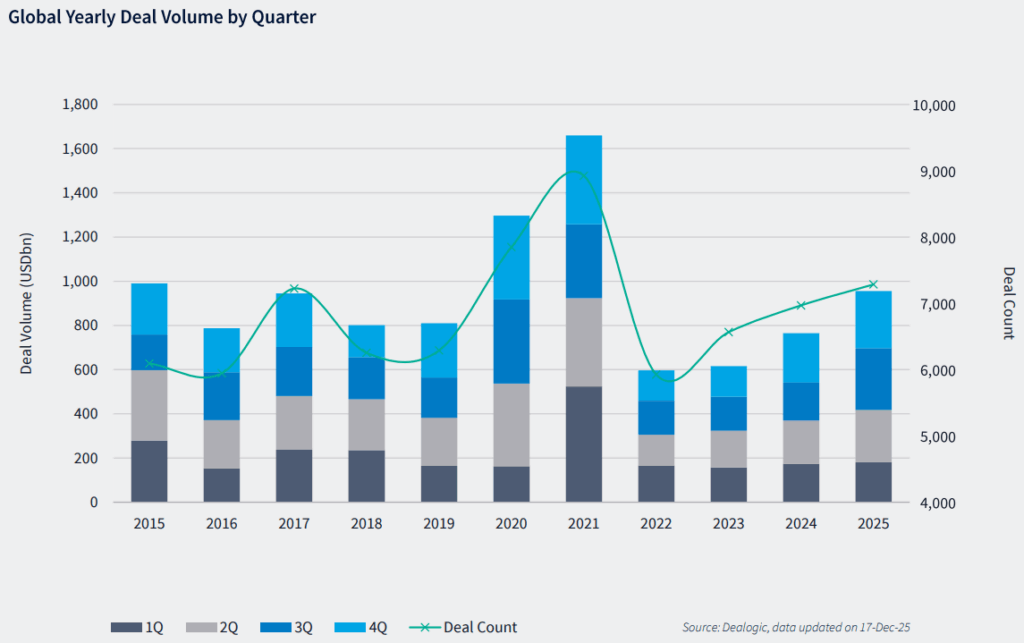Sponsors and stock sellers need to go cheap, or go home, to offset Trump/AI volatility – ECM Pulse EMEA
A violent tech selloff in the US last week gave equity investors plenty of food for thought over the weekend. And then US President Donald Trump added fuel to the fire with his announcement on new tariffs on Canada, Mexico and China on Saturday.
If equity sellers want to deal in this environment, they will have to offer investors greater discounts to offset increasingly fretful markets, sources told ECM Pulse.
Tech stocks were hit hard last week by a retreat in some prominent artificial intelligence (AI) stocks in reaction to the advancement of the Chinese AI model DeepSeek, which appears to have produced a powerful AI tool at a fraction of the cost of US giants in the sector.
The most notable reaction in in Nvidia [NASDAQ:NVDA] shares; the company had over half a trillion dollars of value wiped off its market cap on Monday 27 January.
Despite the ferocity of the sell-off in a few names, most sources in equity capital markets in Europe had been sanguine.
But matters through were made far worse by the 47th president of the United States over the weekend, with global equity suffering serious losses on Monday, 3 February, after Trump unveiled 25% tariffs on Mexico and Canada on Sunday alongside an additional 10% tariff on all imports from China.
European markets were trading deeply in the red as ECM Pulse was preparing for press and US futures looked bleak. The CBOE Vix index, the benchmark for US market volatility had risen almost 27% on Monday morning and was trading above 20, the much-vaunted danger mark for ECM transactions.
“Trump has just ruined the week – we might as well all just go home,” joked one ECM banker on Monday morning.
More volatility on top of an already precarious time for markets, given violent swings in large-cap tech stocks can prove a nightmare for ECM transactions, given investor reluctance to put money to work at a time of heightened market risk and volatility.
An ECM investor noted that equity markets were particularly jumpy, which could make deals difficult if this mood continues. “Investors are just selling their positions in this market and then taking the time to think about the news that is driving that later,” he said.
The banker said that Europe had benefitted a little from US market turmoil last week, with US investors involved in buying Europe through general trading as well as participating in the Irish government’s EUR 652.12m sale of AIB Group plc [DUB:A5G] shares, the most significant block trade priced last week.
However, the global market losses on Monday morning made the outlook for this week feel slightly grimmer.
“It is insanely difficult to put money to work in this market,” the banker said. “Particularly for outright investors, the huge moves in some of the tech names like ASML [AMS:ASML] and Nvidia were crazy,”
“It’s now worse with the tariff talk and even if a hedge fund was going to take a position I can’t imagine them doing so without having the downside protection on the other side.”
Structuring through the volatility
However, there seems to be a way forward for European ECM through structuring deals at such an attractive price point that the value screams through the market noise.
The IPO market for example, particularly in EMEA, remains structurally healthier than it was a few months ago as per Dealogic’s IPO health index so the issue remains structuring deals to offset general market volatility, rather than ECM-specific issues.
As reported by this news service last week, sponsors Cinven and EQT alongside CPIBB, unveiled the price range for the IPO of Spanish travel technology platform HBX Group at a generous discount to its closest peer.
The deal price range of EUR 10.50-EUR 12.50 per share represents a post-money market cap of EUR 2.66bn-EUR 3.03bn. It further represents an EV/EBITDA multiple range of 7.9x-8.8x, with 2025 EBITDA forecast at EUR 448m according to a source familiar with the deal.
This roughly represents a 42% discount to peer Amadeus [BME: AMS] at the bottom of the range and 35% at the top, the source said at the time.
The same source noted that while the sellers had always foresaw offering a generous discount to peers, increasing US volatility prompted them to bake in an even greater concession than originally planned.
“You need wiggle room on these markets and the sponsors need this to work well,” the source said, noting that the disposal strategy for all three shareholders was centred around not selling much at IPO, giving the stock enough room to trade up and then start sell-downs through block trades later this year.
He added that with an IPO being exposed to market risk over a period, all sellers might have to adopt a similar approach to guarantee a successful deal.
Trump’s tariff announcement over the weekend shows just how quickly stock market fortunes can change.
The banker ECM banker, who is away from the HBX IPO praised the strategy.
“It’s a good strategy on HBX and frankly something they needed to do, it was either structure it with that sort of discount or pull the deal in this rot of market.”
HBX Group declined to comment, pointing to its initial IPO press release. Sellers CPPIB and EQT did not respond to requests for comment and Cinven declined to comment.
In a world where nothing is certain, more sellers will need to do the same and fingers will be crossed that it is enough to get HBX across the line, despite an increasingly tempestuous Trump.












